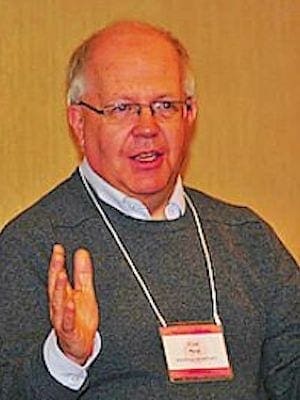Citizenship is about identity, belonging and – in the European Union, at least – how the individual plays his or her part in the building of a democratic society.
One helpful definition I read recently was: “Citizenship is the way we live together and organize our lives together despite the differences among us and between us.”
In the European Union (EU), there needs to be a more intentional strategy to imbue the values of citizenship because citizenship in the EU is “over and beyond” the individual’s primary citizenship in their own EU member country.
So what is the contribution of Christian understanding to the current debate about EU citizenship? I list a few pointers:
1. The Christian belief is in a God who is personal and relational, and whose nature is to reach out beyond himself to embrace creation and all that dwells in it.
This fundamental connectedness at the heart of the universe informs a Christian understanding of citizenship.
It is seen in the mutuality of relationships in God as Trinity – Father, Son and Holy Spirit.
It is also present in the Bible – from the first anguished question of Cain after the murder of his brother, Abel, in the book of Genesis, “Am I my brother’s keeper?” to the great commandment to love God and love neighbor.
Building human community is not an option; it’s a part of the DNA of the Christian.
2. This valuing of the inviolable human dignity of people beyond ourselves is grounded in the way in which the Bible describes human beings as reflecting the image of God (imago dei).
In a Christian understanding, this is where human rights and responsibilities find their foundation. It is also where the nurturing and protection of such rights and responsibilities are a primary concern of what it means to be a good citizen.
3. But what of the “other” who is different from us, and whose presence in Europe can sometimes lead to xenophobia and a narrow, exclusive nationalism?
The Old Testament command to “love the stranger” is developed in the New Testament concept of the truly global community of the church where diverse nations and cultures can love together in peace and find their unity in Christ who transcends them all.
European citizenship also needs to embrace a similar vision of the world, its needs and Europe’s place within it.
4. Another relevant concept from biblical theology is that of “shalom.”
This Hebrew word is often translated simply as “peace” but is used in the Old Testament to embrace a vision of the healing, wholeness and harmony of relationships – personal, communal and societal.
Christian theology also addresses the sin and evil that so often threatens “shalom.”
In European society, it can often take the form of a consumerist, selfish greed that does not work for the common good of the whole of society.
A Christian understanding insists that in the life, death and resurrection of Jesus Christ (what is sometimes called at-one-ment), the possibility of redemption and a restored harmony in society is now possible.
In particular, in the Bible there is a special concern for the poor, the marginalized, the refugee and the stranger. If a society is judged on how it cares for its weakest members, then any concept of European citizenship must make this concern its priority.
5. Finally, there is an eschatological dimension to a Christian approach to citizenship.
Christians seek to live as good citizens, wholeheartedly committed to being “salt and light” in whatever human society of which they are part.
The perspective of the Free Churches from which I come is that there should not be any special privilege or status granted to Christians in a pluralistic society. They work with those of other faiths or none for justice, peace and the common good of all.
At the same time, the Apostle Paul reminds us that our ultimate citizenship is in the heavenly Kingdom of God. For the Christian, this gives a certain “provisionality” to all current political structures.
This is not a reason for Christians to opt out of being good citizens of their societies.
Rather, this dimension should often lead them to be dissatisfied with the status quo and drive them seek new creative possibilities of working with others as citizens to make human society come closer to the values of the Kingdom of God.
Tony Peck is general secretary of the European Baptist Federation. This column first appeared on his blog, Europe Matters.

